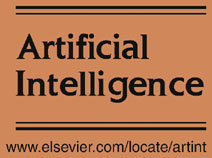
UAI 2024 - Keynote Speakers
UAI 2024 is pleased to announce the following invited speakers:
Nicolò Cesa-Bianchi, Università degli Studi di Milano e Politecnico di Milano, Italy
Dominik Janzing, Amazon Research, Germany
Vanessa Didelez, Leibniz Institute for Prevention Research and Epidemiology - BIPS, Bremen, Germany

Nicolò Cesa-Bianchi
Università degli Studi di Milano e Politecnico di Milano, ItalyTitle
The power of cooperation in networks of learning agents
Abstract
We study the power of cooperation in a network of agents that exchange information with each other to learn faster. In the talk, we show the extent to which cooperation allows to prove performance bounds that are strictly better than the known bounds for non-cooperating agents. Our results are formulated within the online learning setting and hold either when agents learn a single common task or when each agent learns a different task.
Bio
Nicolò Cesa-Bianchi is professor of Computer Science at Università degli Studi di Milano and holds a joint appointment at Politecnico di Milano. His main research interests are the design and analysis of machine learning algorithms for online learning, sequential decision-making, and graph analytics. He is co-author of the monographs "Prediction, Learning, and Games" and "Regret Analysis of Stochastic and Nonstochastic Multi-armed Bandit Problems". He served as President of the Association for Computational Learning and co-chaired the program committees of some of the most important machine learning conferences, including NeurIPS, COLT, and ALT. He is the recipient of a Google Research Award, a Xerox Foundation Award, a Criteo Faculty Award, a Google Focused Award, and an IBM Research Award. He is ELLIS fellow and member of the ELLIS board. He is a corresponding member of the Italian Academy of Sciences.

Dominik Janzing
Amazon Research, GermanyTitle
All causal DAGs are wrong but some are useful
Abstract
While the quote “all models are wrong but some are useful” is widely known in statistics, discussions around causal DAGs and causal discovery seem to assume the existence of a “true DAG”. This assumption is problematic as it often results in causal graphs that are less useful. But first we should ask: useful for which purpose? I try to give an incomplete list of more than 5 different tasks for which causal DAGs may help.
As not all of these tasks require ground truth from interventions (after all, interventions are often not only impossible, but even ill-defined), I propose that causal discovery should be benchmarked against them. This way, I hope that causal discovery research can gain new momentum after an honest assessment of the current state-of-the-art, using well-defined performance metrics on real data. Further, I hope that these tasks shed some light on the meaning of causality.
Some related work:
- Faller, Vankadara, Mastakouri, Locatello, Janzing: Self-compatibility: Evaluating causal discovery without ground truth, AISTATS 2024
- Gresele, Von Kügelgen, Kübler, Kirschbaum, Schölkopf, Janzing: Causal inference thorugh the causal marginal problem. ICML 2022.
- Janzing, Faller, Vankadara: Reinterpreting causal discovery as the task of predicting unobserved joint statistics, arxiv:2305.06894
- Janzing, Garrido-Mejia: A phenomenological account for causality in terms of elementary actions. Journal of Causal Inference 2024.
- Schölkopf, Janzing, Peters, Sgouritsa, Zhang, Mooij: Causal and anticausal learning, ICML 2012.
- Okati, Garrido-Mejia, Orchard, Blöbaum, Janzing: Root Cause Analysis of Outliers with Missing Structural Knowledge, arxiv:2406.05014
Bio
Dominik Janzing studied Physics (Diploma in 1995) and Mathematics (PhD in 1998) in Tübingen (Germany), and Cork (Ireland). In 2006 he received his Habilitation (teaching permission) in Computer Science at the Karlsruhe Institute of Technology (KIT). From 1998 to 2006, he worked in quantum information theory, quantum thermodynamics, and quantum complexity theory at KIT. Fascinated by the field “physics of information” he started research on causality in 2003 e.g. about new methods for bivariate causal discovery. In 2007 he joined Max-Planck-Institute of Biological Cybernetics in Tübingen, where he co-founded the team “Causal Inference” together with Bernhard Schölkopf, which moved later to Max Planck Institute for Intelligent Systems. In 2018 he joined Amazon Research Tübingen where he leads foundational and applied research on Causal Inference as a Principal Research Scientist. He also teaches seminars on causal inference at KIT as “Privatdozent”.
Major contributions range from causal discovery, Independence of Mechanisms, relation between thermodynamics and causality, quantification of causal influence and causal attribution, and conceptualization of root cause analysis.
He co-authored 70+ publications about causal inference and its foundations, including the textbook “Elements of Causal Inference”, and 40+ publications on quantum information theory.

Vanessa Didelez
Leibniz Institute for Prevention Research and Epidemiology - BIPS, Bremen, GermanyTitle
Between theory and praxis: causal inference & discovery in Epidemiology
Abstract
The UAI conferences have a long tradition of crucial contributions to causal inference, especially with causal diagrams, and causal discovery. In this talk I will build on this tradition and review current use and needs in the field of Epidemiology, which often aims to address causal research questions with observational, incomplete, and temporally structured databases. Building a causal model, determining sufficient and efficient adjustment sets, and (nonparametrically) estimating causal effects are key tasks. I will show how this has led to recent advances and new insights into methods of causal inference and causal discovery.
Bio
Vanessa Didelez is Professor of Statistics and Causal Inference at the Leibniz-Institute of Prevention Research and Epidemiology – BIPS, Bremen, Germany, in a joint appointment with the Department of Mathematics and Computer Science of the University of Bremen. She graduated in the subject of Statistics with Psychology and received her PhD in Statistics from the University of Dortmund, Germany. She spent 16 years in the UK, first at the Department of Statistical Science, University College London, and then at the Department of Mathematics at the University of Bristol. She was appointed at BIPS in 2016, where she is Deputy Head of the Department of Biometry and Data Management. She has held numerous grants, most recently on "Causal discovery across the lifespan" funded by the German Research Foundation. Her research combines many aspects of causal inference, graphical modelling, and time-structured / time-to-event data with applications in epidemiology.




